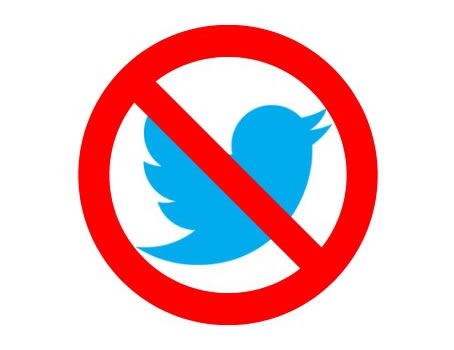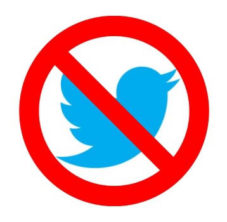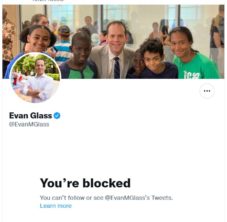The following is a multi-part series on the Twitter accounts of the Montgomery County Council. It has been written and submitted by an anonymous author. Part 2 on Will Jawando can be found here. If you have been blocked by any members of the Montgomery County Council on Twitter, please contact us at inquiry@cleanslatemoco.com
As social media has become an inherent part of our daily lives, politicians across the globe have embraced the mechanism to not only campaign but also as a core method for engaging with the public and disseminating vital information in an official capacity. Over the last 10 years one of the major debates that has ensued is: what right does an individual have to see the content on an elected official’s social media? Is the availability of content posted by an elected official considered public information? Is blocking, muting, or unfriending a violation of a citizen’s first amendment rights? Does the public have the right to interact with the social media account of an elected official without the threat of being penalized access to the content they post?
There has been a myriad of court cases over the last 10 years debating this issue. Some of the most notable are below:
Knight First Amendment Institute at Columbia University v. Trump (final opinion):
This was a US Appeals case that affirmed a lower court ruling that President Trump engaged in unconstitutional viewpoint discrimination after he blocked users from his Twitter account for posting comments he disliked. The Court found there was “overwhelming evidence” that the account was used for official purposes and that the blocking was a restriction by the government, rejecting the President’s claim that his Twitter account was personal. The Court considered Twitter’s interactive functions such as replying, retweeting, and liking to be forms of expressive conduct allowing individuals to communicate not only with the President but with thousands of others. (Global Freedom of Expression)
Davison v. Randall (final opinion):
This was a US Appeals case that affirmed a lower court ruling that Loudoun County School Board (LCSB) Chair Phyllis Randall’s Facebook page constituted a public forum and that she did not maintain it in a lawful manner. Randall had deleted comments posted by Davison on her Chair’s Facebook page that included allegations of corruption and conflicts of interest within the LCSB and she subsequently banned him for 12 hours from the Facebook page. The Court found that by engaging in viewpoint discrimination on her Facebook page, the Chair violated the Plaintiff’s freedom of speech rights under the First Amendment and was not entitled to block the Plaintiff or any citizens from commenting on her Facebook page. (Global Freedom of Expression)
ACLU vs Gov Larry Hogan
This lawsuit was settled outside of court, with the ACLU winning a settlement from the state Board of Public Works. The ACLU claimed victory for the free speech rights of constituents who wish to respectfully disagree and promote their political views with their elected officials. (ACLU-MD)
In all of these cases the basic legal premise that was established is that a public official can violate an individual’s constitutional rights by blocking them or restricting their access. Elected officials have tried to avoid this by claiming that their social media site (or handle) is “personal” and not being used in their capacity as an elected official. Courts have wrestled with the distinction between public and private social media accounts, and while there are not black/white lines, they have generally considered that a social media account is being used for government business (and not personal) when it:
- links to a public office address/email or phone number,
- displays government symbols,
- shares information about government services or meetings, or
- asks for input on government business (ACLU-MA).
Now what does any of this have to do with Montgomery County? In February 2023, a request under the Maryland Public Information Act was filed with the County requesting a listing of the Twitter accounts that are blocked by County Council Members and the County Executive. Portions of the request have been responded to, including a response as it relates to the Twitter accounts of the County Executive.
County Executive Marc Elrich operates 2 twitter accounts:
In response to the MPIA, Marc reported that the account @MontCoExec does not have any users currently blocked. Thumbs up.
Marc refused to turn over the details of the account @Marc_Elrich. His defense was that this was a personal account and therefore not subject to public disclosure under the MPIA.
Let’s explore this further, testing it against the criteria that courts have used to determine if an elected official’s account is really “personal”. Using available software, I conducted an analysis of 597 of the most recent tweets for @March_Elrich. This represents 41% of the tweets Marc has posted over the lifetime of this account. The tweets are from July 2020 to present.
Finding 1: Marc uses this account to amplify official government business
In looking at the 597 tweets, 303 of these tweets were a retweet or a quote. This is 50%.
In looking at which accounts were retweeted, you can see that he retweeted 91 tweets from the Montgomery County account (41%) and 47 tweets from his @MontCoExec account (21%). So, in total, 62% of retweets from Marc’s “private” account were from official government accounts.
In looking at which accounts Marc quoted, you can see that he quoted his @MontCoExec account 21 times (25%) and 9 tweets from the Montgomery County account (10%). So, in total, 35% of quoted tweets were from official government accounts.
If you do some basic math, the numbers tell you that 27% of the total tweets Marc released were retweets or quotes of official government accounts. It is clear that Marc is using his “personal” account which has 2x the number of followers to amplify the social media released by official accounts.
Below are examples of some of the retweets and quotes that compose this data set.
Finding 2: Marc routinely tweets content that displays government symbols, shares government information, and solicits public input.
The process of identifying these types of tweets is a manual process. In reviewing the timeline of Marc’s personal account there is a plethora of examples in which he violates the criteria used by courts for an elected official to support the designation of a personal account. These tweets are original content and not retweets or quotes. Below are some that illustrate that wide range of violations.
Marc conducting official MoCo business.
Marc acting in his official capacity as County Executive conducting business on behalf of constituents.
Marc posting official Montgomery County symbols and graphics produced by the tax payer.
Marc providing vital public health information during a pandemic, using a video that was produced by the County government.
Marc soliciting public input on official government proceedings and leveraging county produced graphics and symbols.
Marc providing important information related to services available to constituents, while leveraging County produced graphics and symbols.
Marc sharing the activities he has conducted while in an official capacity.
Marc inviting the public he serves to his inauguration.
The list of tweets can continue. But these alone provide enough evidence that Marc views his twitter account as a platform to communicate to the public he serves and solicit their input. They also offer adequate proof that Marc will leverage videos and graphics produced by county employees.
Marc must release his current listing of blocked individuals, recognizing that his claim that this is a “personal” account is fraudulent. If not, the public should organize for a legal challenge.




















